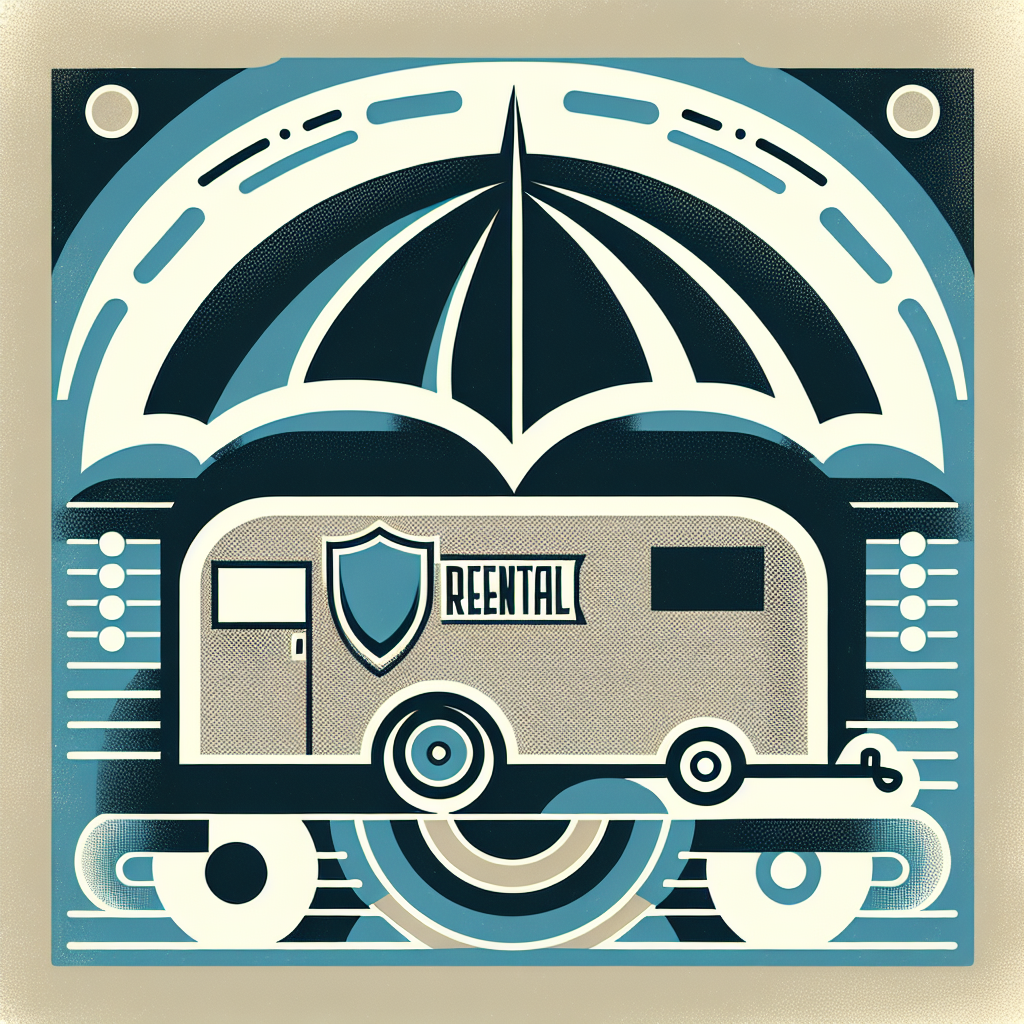Filed under Business Insurance on
Guide to Insurance for Your Trailer Rental Business

Running a trailer rental business comes with a host of responsibilities, and one critical aspect that demands attention is securing adequate insurance. Understanding the nuances of insurance for your trailer rental business can safeguard your investment and provide peace of mind. This guide delves into the intricacies of insurance options, ensuring your business is well-protected.
Understanding the Risks Involved
Before selecting an insurance policy, it’s crucial to comprehend the various risks associated with trailer rental businesses. From accidents and theft to liability issues, understanding these risks allows for a more informed decision-making process.
Common Risks for Trailer Rental Businesses
- Accidental Damage: Trailers are often exposed to a variety of environments, making them susceptible to accidental damage.
- Theft and Vandalism: Both trailers and their contents can be targets of theft or vandalism, impacting your revenue and reputation.
- Liability Claims: If a rented trailer causes an accident or injury, your business may face liability claims, which can be costly without proper coverage.
- Weather Damage: From hail storms to flooding, severe weather can wreak havoc on your fleet, leading to significant repair costs.
- Transport and Logistics Issues: Problems during transportation can lead to loss and require insurance coverage to mitigate financial loss.
Types of Insurance Coverage
To adequately protect your trailer rental business, consider a mix of insurance policies tailored to cover different aspects of your operation. Below are some essential types of coverage that every trailer rental business should contemplate.
General Liability Insurance
General liability insurance is fundamental for any business, providing coverage for bodily injuries or property damage that may occur due to your operations. Whether a customer slips and falls at your location or an incident occurs involving your trailer, this insurance helps cover legal fees and settlements.
Commercial Auto Insurance
Given that trailers often travel extensively, commercial auto insurance is vital. This policy covers damages resulting from accidents involving your trailers. It includes coverage for collision, comprehensive expenses, and sometimes uninsured motorists.
Property Insurance
Property insurance protects your physical assets, including trailers and equipment. Should a disaster like fire or theft occur, property insurance helps replace or repair damaged assets, ensuring minimal disruptions to your business.
Contents Coverage
If your trailers include contents or equipment, additional coverage is necessary to protect these valuables from theft or damage. This type of insurance ensures that the items you rent remain safeguarded under various circumstances.
Business Interruption Insurance
In the event of an unforeseen incident that halts your business operations, business interruption insurance provides compensation for lost income. This allows you to cover ongoing expenses and maintain financial stability until normal operations resume.
Workers’ Compensation Insurance
If you have employees, workers’ compensation insurance is crucial to cover medical expenses and lost wages should an employee suffer an injury while on the job. This insurance not only protects employees but also shields your business from legal complications arising from workplace injuries.
Choosing the Right Insurance Provider
Selecting the right insurance provider is as important as choosing the right coverage. Below are strategies to guide your decision-making process when evaluating potential insurers for your trailer rental business.
Research and Compare
Begin by researching various insurance companies that specialize in commercial coverage. Compare offers from multiple providers, focusing on the scope of their insurance packages, pricing, and reputation within the industry.
Read Reviews and Seek Recommendations
Customer reviews provide insights into how a provider handles claims and customer service. Additionally, seeking recommendations from fellow business owners or industry professionals can lead to trusted insurers who understand the unique needs of a trailer rental business.
Consider Financial Stability
The financial health of an insurance company can impact its ability to pay claims. Opt for insurers known for robustness and reliability, ensuring they can cover large-scale claims should the need arise.
Discuss Customization Options
Discuss potential customization of policies with insurance agents. Tailored insurance solutions can address specific risks pertinent to your trailer rental business, providing more comprehensive protection than one-size-fits-all policies.
Cost-Saving Tips for Insurance
Balancing comprehensive coverage with cost-effectiveness can be challenging. Below are strategies to help manage insurance expenses without sacrificing essential protection.
Bundle Insurance Policies
Consider bundling multiple insurance policies with one provider. Many insurers offer discounts for businesses that choose a package of coverages, resulting in savings while streamlining your policy management.
Increase Deductibles
Higher deductibles typically result in lower premiums. Assess your business’s risk tolerance and determine whether you can afford a higher deductible in exchange for reduced monthly costs.
Implement Risk Management Strategies
- Regular Maintenance: Routine checks and maintenance of your trailers enhance safety and reduce the likelihood of accidents.
- Security Measures: Implement security systems, such as GPS tracking and surveillance cameras, to deter theft and vandalism.
- Employee Training: Provide comprehensive training for your team to ensure safe trailer handling and management.
Evaluate Your Coverage Annually
As your trailer rental business grows and evolves, so too should your insurance coverage. Annual evaluations allow you to adjust policies, ensuring they remain aligned with current risks and business operations.
The Importance of Legal Compliance
Insurance is also fundamental to ensuring your trailer rental business remains legally compliant. Insurance laws and regulations can vary by state and country, making it imperative to understand and abide by local mandates. Failure to comply can result in legal penalties and undermine your business credibility.
Future Trends in Trailer Rental Insurance
Staying ahead of industry trends can provide your business with a competitive edge. The insurance landscape is continually evolving, with innovations aimed at increasing efficiency and customer satisfaction.
Digital Insurance Platforms
Digital platforms now simplify purchasing and managing insurance, offering paperless solutions that save time and reduce errors. These platforms often provide dynamic pricing models, adjusting premiums based on usage, which could prove cost-effective for trailer rental businesses that experience fluctuating demand.
Advanced Data Analytics
Insurers are leveraging data analytics to tailor policies more precisely and predict claim occurrences more effectively. This insight enables more accurate risk assessments and potentially lower premiums.
Enhanced Cyber Coverage
With increasing reliance on digital systems, ensuring your business has adequate cyber insurance is becoming paramount. This coverage protects against data breaches and cyber-attacks, which can have significant financial and reputational impacts.
Ultimately, understanding and strategically managing insurance in your trailer rental business is indispensable for long-term success. By recognizing potential risks, selecting appropriate coverage, and staying attuned to industry trends, you can safeguard your business assets and maintain a robust defense against unforeseen challenges.





